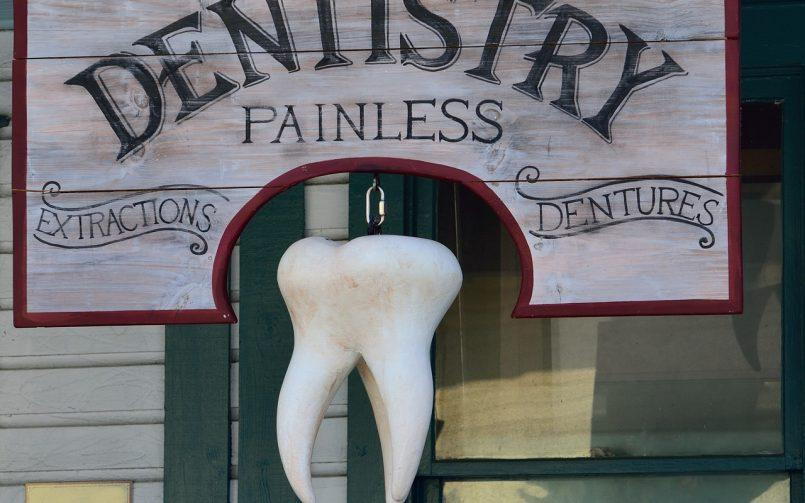
Do you get scared or anxious when you have to visit the dentist? Research suggests you are most certainly not the only one of your kind.
According to a research conducted by the Dental Fears Research Clinic, at least 5-8% of Americans do not fancy a visit to the dentist because they are scared. Yet another 20% say a visit to the dentist would only happen when absolutely inevitable – this is also because they nurse dental fears. Chances are that most children would go through a phase where getting into the dentist’s chair is terrifying — although, they might get over their fears in time.
Fact remains that dental phobia is not only real but it can be very terrifying as well – this is why we have put together an article highlighting:
- Dental Anxiety
- What it is
- Why people experience it
- How to deal with and overcome dental anxiety
- What to do to get over it
- Tips to helping a child get over it
Let’s get started by understanding why people experience dental anxiety.
Why People get scared of Dentists
The average dentist is most likely a nice and friendly person but when they have to work on a patient with dental phobia, they could be nearly as terrifying as a nightmare. This reaction is common with dental anxiety patients, thus begging the question; why do people get scared of their dentists?
While there are an array of reasons people could have dental anxiety, here are four of the most common reasons people have this phobia.
A bad childhood experience
Most people who are subject to dental phobia usually have had a bad childhood experience with the dentist. In some scenarios, a child may have undergone a tooth filling which had painful moments such as:
- The dentist mistakenly scraped a gum while cleaning their teeth with the pick thus hurting the child in the process
- The dentist starts drilling their tooth before the Novocain kicked in properly.
Children with these childhood experiences often grow up and still nurse the phobia that these traumatic events would happen during their next visit to the dentist’s office and seeing as no one likes getting hurt, many people with these experiences would rather avoid a visit to the dentist.
History with anxiety disorder
Some people are subject to anxiety disorders that probably have nothing related to visiting the dentist. This means a person may have never had any experience with the dentist yet still fears they would have a traumatic experience. People who feel such anxiousness about the unknown can easily get rattled up by a prospective trip to the dentist.
A feeling of Vulnerability
Some people dislike the idea of being at the mercy of someone with sharp objects and hoping they don’t accidentally hurt them. Sitting on a dentist’s chair often makes such people feel vulnerable. This is even more common with people nursing PTSD (Post Traumatic Stress Disorder). The feeling of lack of control terrifies them.
Fear of receiving treatments
Some people understand that they need to get their teeth examined by a dentist. Yet they are often afraid that they may have cavities that need to be drilled and instead of face these fears and be certain of the situation of things, they would rather be ignorant of the issues they may have. However, it is important to note at this point that postponing the visit to the dentist increases the chances of them having a cavity or some other dental complication. This fear of receiving treatment may cause a tiny issue to get bigger such that when such a person finally visits the dentist, they may need serious treatment.
Perhaps you or someone you know is subject to one or more of these aforementioned reasons and while you may not quite nurse a paralyzing dental anxiety, you could still have certain discouraging fears. Here are some tips to dealing with dental anxiety.
How to deal with and overcome dental anxiety
Steps to dealing with Dental Anxiety:
- Admit that you have dental anxiety: The first step to solving any problem is admitting that there is a problem. Instead of making excuses for why you can’t visit the dentist, you need to admit that you have dental anxiety or dental phobia.
- Understand why you have Dental Anxiety: Chances are that one or more of the reasons we listed above could be why you are afraid of visiting the dentist. It could also be something more or less complicated. It is however, up to you to figure it out. You would not be able to confront your fear without understanding the cause of your fear.
- Decide: When you understand what the problem is, you have to decide and plan to solve it. It is understandable if you have no idea how to overcome your dental anxiety issues but we have a few ideas to set you down the right path.
Overcoming Dental Anxiety
Now that you know what steps to take to deal with your dental anxiety issues, it’s time to take it a step further by not just dealing with it but also overcoming it and here are some tips to overcoming your fear of the dentist’s chair
Schedule a meeting with your dentist before the procedure
Research suggests that patients feel a lot more confident and at ease when they know their doctor personally. Chances are you probably do not know that your dentist has two children or that they are not just dentists. Meeting them before the procedure is a great way to ease your fears. Set up a meeting and ask any questions you have concerning the practice, their personality or the policies.
Go with a friend or a relation
Most adults think they “can handle it” but the truth is fear is not age specific. If you discover that you have dental anxiety, you could consider going to the dentist with a friend or a relation who understands your fears – this is not only reassuring but can also help you stay calm during the procedure.
Wear Noise-Canceling Headphones
Most people who visit the dentist for treatment get anxious the instant they hear the drill. By simply using some noise-canceling headphones, these fears can be curbed to a bearable minimum. If patients with this fear can’t hear the drill, it makes the procedure a lot easier.
Discuss the available pain management options
Most people just do not like to feel any sort of pain. It is important to discuss the available pain management options with your dentist and or hygienist. It is also important that they know about your fears as this would help them understand where your phobia is coming from. Some pain management options are:
- Use an anesthetic to numb an area where the injection will be made
- Try out new techniques like delivering anesthetic via an electronic method
- Using laser drills instead of using traditional drills.
While it is not every office that offers these options, opening a dialogue with your dentist about pain management alternatives will help you feel more at ease.
Get Distracted
Pain or Fear is usually heightened when you think about it or concentrate on it – when visiting the dentist; it is advisable to keep your mind off of what is going on in your mouth. Some people:
- Count to 1000 by 3’s.
- Replay a movie in your head.
- Recite the alphabet in your head – backwards! Etc.
How to Help Your Child Get Over Dental Phobia
You are more likely to find a child who has dental anxiety than an adult. In a survey, 30% of the children admitted to having dental fears.
Here are some ways to help a child get over dental anxiety.
Don’t pass your fears to your kids
Parents who are scared of visiting the dentist would most likely have children who share the same fears. While dental anxiety is not very easy to deal with, it is important that you do not expose your kids to your own fears. Let them decide how they feel about the dentist.
Play Dentist at Home
Prior to a visit to the dentist, you might want to try playing a make-believe game where you are the dentist and you pretend to clean their teeth or check for cavities. Then you could play the patient and have them play the dentist.
Discuss their Fears
Dental Anxiety is nothing to hide or be ashamed of – and your kids should know this. Discuss their fears or concerns, and attempt to alleviate them if you can. The more normal they see a visit to the dentist, the better for them.
If you know anyone that has dental anxiety please forward them this article.
